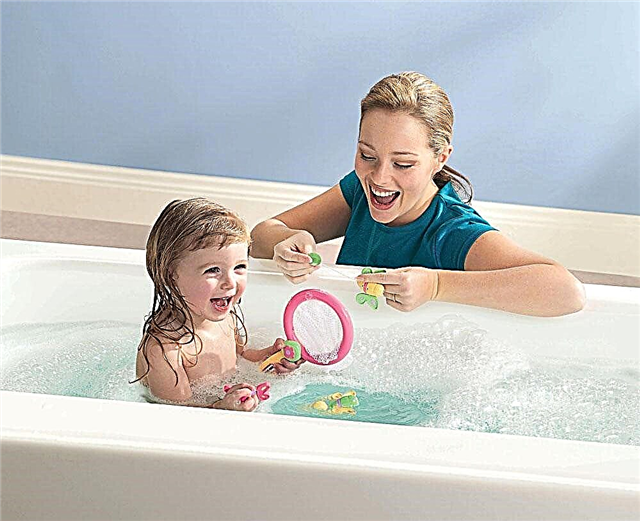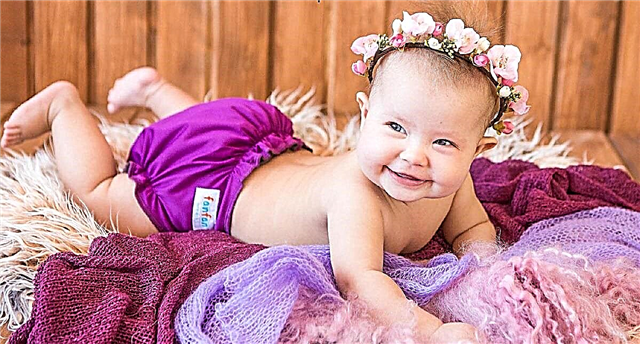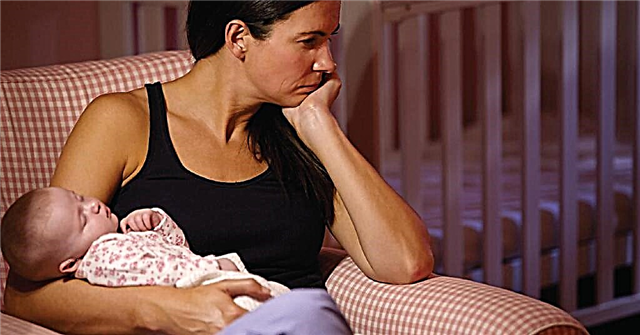Excellent health, no problems with the skin, good immunity in a newborn depends on whether mom can properly carry out hygiene procedures.
Hygiene of a newborn is a necessary, daily stage of caring for an infant, which includes several mandatory procedures.
If you do not maintain the cleanliness of the newborn's body, then health and skin problems will certainly arise, which will have to be solved with the help of a doctor and medications. It is necessary to take care of the baby's skin constantly, some procedures need to be carried out in the morning, others throughout the day.

Newborn's daily toilet after waking up
After the baby wakes up in the morning, he needs to rinse his eyes, clean the nose of mucus, remove dirt from the ears, and wash. The most prerequisite is the cleanliness of the mother's hands - they must be thoroughly washed with soap, preferably the nails should be short, otherwise you risk injuring the baby's delicate skin. Hygiene items for daily care must be selected in advance, choosing the highest quality, safe and comfortable.
- We take care of the eyes. It is necessary to prepare warm boiled water in a small container and cotton swabs; it is not recommended to use pure cotton wool, as after it there are villi. We moisten the tampon in water, squeeze it slightly and wipe the eye, moving from the outer corner to the inner one. Use a separate swab for each eye. If you see that the baby wakes up with abundant discharge, then you can use a decoction of chamomile, calendula, or strained light-colored tea leaves to wash the eyes.
- Care of the nasal passages. During the night, mucus accumulates in the nose of the newborn, which prevents him from breathing normally. If the discharge is liquid, then cotton turunda soaked in sterile vegetable oil are used to remove them. The turundochka is inserted into the nasal passage with rotational movements and also removed from the nose. Rotation helps to collect all the mucus, but the turunda should not be injected deeply. The nasal passages are cleaned with separate flagella. If the mucus is dry, then first you need to soften it using droplets with a base of sea water. They are completely harmless and do not cause allergies. More on how to clean your baby's nose
- Ear care. It is only necessary to clean the external auricle, the baby's ear canal is too delicate and any careless movement can result in painful sensations for the baby. It is safer to clean the auricle with cotton pads soaked in water; you can also use soft ear sticks with special clips. Detailed article on how to clean your ears
- The baby's face is wiped with cotton swabs dipped in warm boiled water. Be sure to wipe your forehead, cheeks, chin.
- The daily hygiene of the newborn after waking up consists in washing the buttocks and genitals. Washing is carried out with warm water, after which the skin and folds must be thoroughly dried and treated with baby powder or a special cream for a diaper. Talc, contained in these products, absorbs excess moisture and prevents diaper rash.
- In the first days after the baby is born, you need to take regular care of the umbilical wound. You will need 3% hydrogen peroxide, a solution of brilliant greens and cotton swabs. A cotton swab or tampon is moistened in peroxide and the navel area is well moistened, it is advisable to wait one to two minutes for the crusts to soften. Then carefully remove the loose dry crusts. Again, wash the navel with a clean cotton swab with peroxide. Dry with a clean swab and process with brilliant green. It is not necessary to lubricate the skin around the umbilical wound with an antiseptic, firstly, it is not advisable, and secondly, it will not allow you to notice changes in skin color. And the appearance of redness and an increase in temperature in this place indicates inflammation, when fixing such phenomena, you must definitely call your pediatrician. Typically, the umbilical wound heals in less than 10 days, a slight bleeding during this period is also a normal option. Umbilical wound care article
Detailed article: newborn baby skin care
Perhaps you will be interested in: an article on when to start brushing babies' teeth (how to clean them properly. + Many videos)
Hygiene all day long

Caring for your baby is not limited to the morning hours, the personal hygiene of the newborn must be observed throughout the day.
After each act of defecation, it is imperative to wash the baby, dry his skin and treat the folds with talcum powder or baby cream.
After feeding, you need to make sure that the area near the mouth is clean, food debris quickly leads to the appearance of small punctate pink rashes.
Diaper change. Washing away
Nail care

Many parents are panicky afraid to trim the nails on the arms and legs of the baby, fearing to hurt him. You can safely and quickly cope with regrown marigolds using the advice of pediatricians.
- Safety scissors with fine blades and rounded tips with protective caps should be purchased. Some mothers find it more convenient to use special tweezers; such devices are also produced specifically for babies - they have a conveniently mounted magnifier that increases the area of the nail edge several times. Using such clippers, you will not be afraid to cut your marigolds.
- Cutting nails is best when the baby is asleep - newborns sleep soundly and they do not feel at all careful manipulation.
- You need to cut marigolds regularly - with long nails a child can scratch his face, because the baby still does not know how to control movements.
Detailed article:How to properly trim your newborn baby's nails
During the day, you need to monitor the condition of the skin folds on the neck and interdigital spaces. In these places, small lint from clothes quickly accumulate; they can be removed with a damp swab or special baby wipes.
Bathing
 When carrying out hygiene at home, the most important ritual in the evening is the bathing of the baby, this procedure should not be neglected and it is advisable to carry it out every day in the first weeks of life. Bathing in warm water not only cleanses the baby's skin of accumulated toxins, residues of biological fluids, sweat, but also soothes and relaxes, which guarantees a restful sleep at night.
When carrying out hygiene at home, the most important ritual in the evening is the bathing of the baby, this procedure should not be neglected and it is advisable to carry it out every day in the first weeks of life. Bathing in warm water not only cleanses the baby's skin of accumulated toxins, residues of biological fluids, sweat, but also soothes and relaxes, which guarantees a restful sleep at night.
How to bathe your child correctly:
- The first step is to decide on a bathing room. If the bathroom is too small, you can bathe in the bedroom, but you need to warm up the room and check for drafts. For bathing, you will need a bath, water with a temperature of up to 37 degrees, a thermometer for measuring it, a jug of warm water for rinsing, a diaper, and a towel.
- Gently dip the baby into the prepared water (so that the baby is not frightened, you can first wrap it in a thin diaper, it allows the baby to adapt more gently to the changed conditions). First, the legs are immersed, then gradually the whole body. It is necessary to ensure that the head and ears are not under water, special slides and rollers are sold that hold the baby's body. We remove the diaper.
- For washing, you need to use a special baby shampoo that does not cause irritation and baby soap. Bathing for the first time lasts 5-7 minutes, then the time gradually increases. After bathing, the head and body are rinsed with prepared water, pouring it is necessary in a thin stream.
- The baby is taken out of the bath, wrapped in a towel and placed on a changing table or bed. Now you need to thoroughly dry all the folds and treat them with special creams.
Bathing articles:
- What water to bathe a newborn baby in
- Bathing a child in herbs
- Baby is afraid to swim
Hygiene products for the little ones

Means for hygiene of a newborn must be especially carefully selected, they must be designed for body care in the first months after birth. It will take a few of the most popular in the first weeks:
- Fragrance-free baby soap.
- Talc. A special baby talcum powder is produced in liquid form. When applied to the skin, it neutralizes moisture well and does not collect into lumps.
- The shampoo should be labeled “no tears”.
- Wet wipes.
- Cream for irritation Bepanten or D - Panthenol. For skin care without irritation, choose a simple moisturizer.
On this topic: TOP 10 products for caring for your baby.
When buying baby hygiene products for a newborn, be sure to pay attention to the expiration date and quality. It is possible to determine the reliability of the manufacturer by clear inscriptions without errors, detailed instructions, clearly visible expiration dates.
More links on the topic of care:
- 3 hygiene rules for girls
- Intimate hygiene of a newborn girl;
- Intimate hygiene of newborn boys;
- Daily and weekly baby care.
[sc: rsa]



